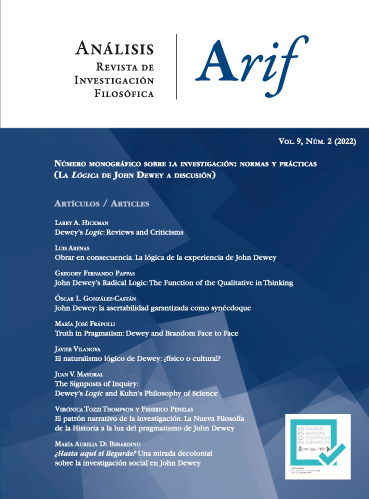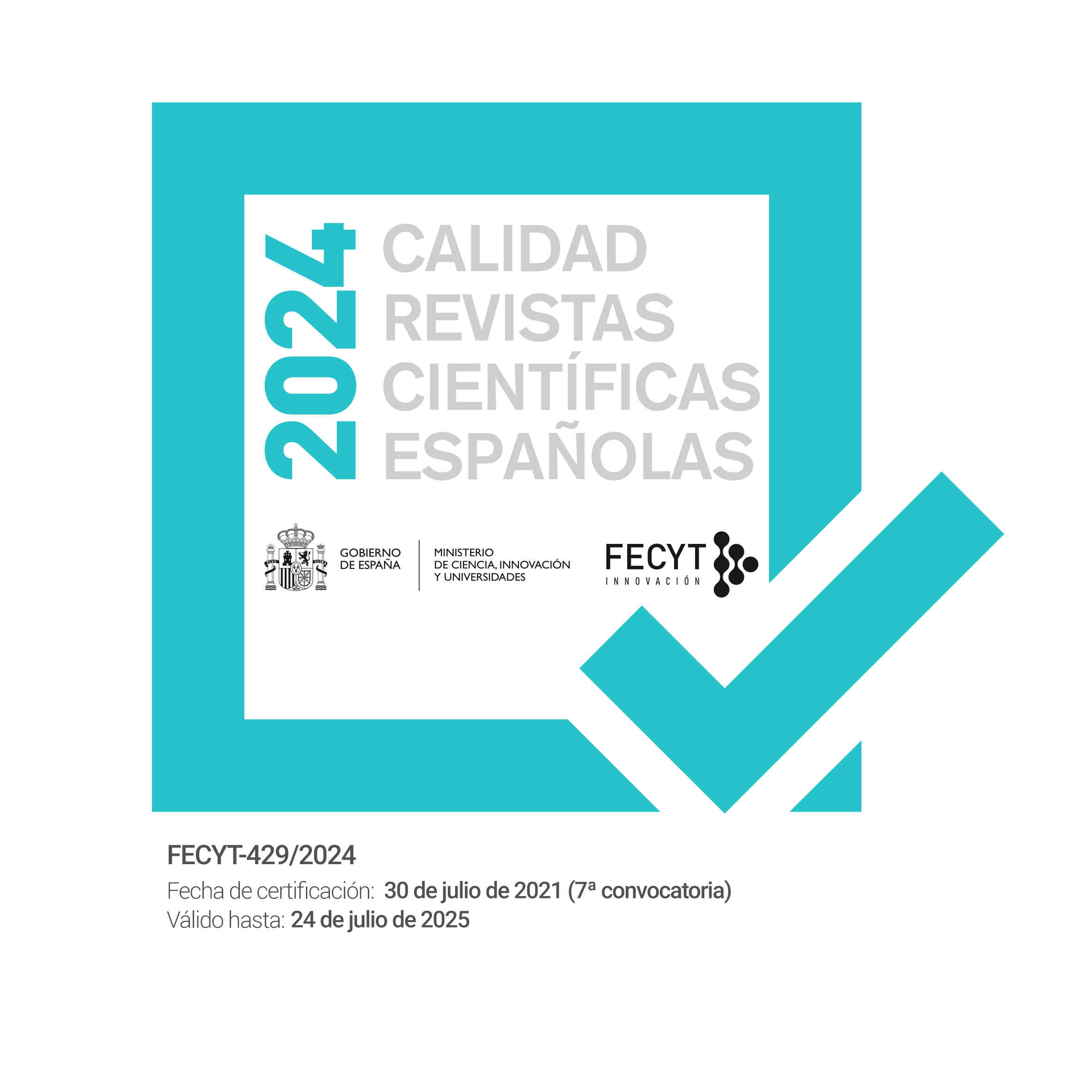John Dewey's Radical Logic: The Function of the Qualitative in Thinking
DOI:
https://doi.org/10.26754/ojs_arif/arif.202227308Resumen
In his later works, John Dewey questioned some of the traditional assumptions about the nature and function of the qualitative in inquiry. Dewey foresaw what recent scientific accounts of human thinking are confirming: it is more complex, less linear, more emotional, affective, bodily-based, non-reflective, non-linguistic, non-conscious than philosophers have assumed. Commentators on Dewey have emphasized how inquiry is social, instrumental, and experimental, but for the most part have neglected the qualitative dimension of inquiry. The first section of this essay outlines the different forms that the neglect of the qualitative has taken in Dewey scholarship. The second addresses what Dewey means by the qualitative. The third presents nine specific functions the qualitative has on thinking (inquiry). The essay concludes in the fourth section with some implications of the view presented on the normative dimension of Dewey’s philosophy, and suggests which promising future inquiries remain open regarding the function of the qualitative in inquiry.
Descargas
Descargas
Publicado
Número
Sección
Licencia
Derechos de autor 2022 Gregorio Fernando Pappas

Esta obra está bajo una licencia internacional Creative Commons Atribución-NoComercial-SinDerivadas 4.0.
Los autores que publican en esta revista están de acuerdo con los siguientes términos: los autores conservan los derechos de autor y garantizan a la revista el derecho de ser la primera publicación del trabajo al igual que licenciado bajo una Creative Commons Reconocimiento-No Comercial-Sin Obra Derivada 4.0 (CC BY-NC-ND) que permite a otros compartir el trabajo con un reconocimiento de la autoría del trabajo y la publicación inicial en esta revista. Los autores pueden establecer por separado acuerdos adicionales para la distribución no exclusiva de la versión de la obra publicada en la revista (por ejemplo, situarlo en un repositorio institucional o publicarlo en un libro), con un reconocimiento de su publicación inicial en esta revista.






